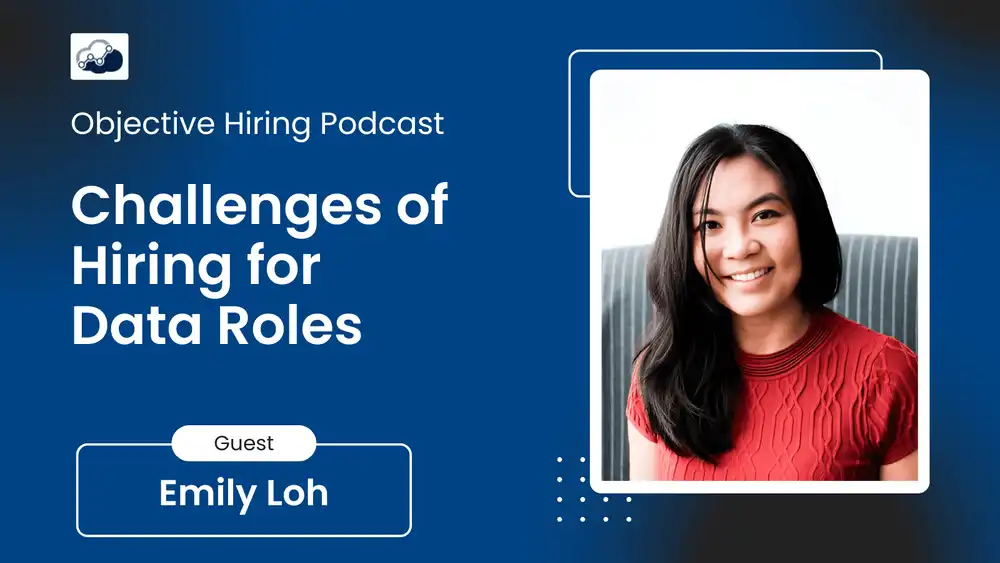Emily Loh on Navigating the Complexities of Hiring for Data Roles

Hiring for data roles is complex, demanding clarity and foresight to ensure that both companies and candidates achieve their objectives. In a recent episode of the Objective Hiring podcast, Tim Freestone sat down with Emily Loh, Director of Data, to discuss common pitfalls and actionable strategies in hiring data professionals.
Emily highlighted a fundamental challenge faced by many organizations: misconceptions about the versatility of data roles. She explained:
“One thing I really struggled with at the beginning of my leadership career was thinking, 'I'm hiring a data scientist, and data scientists can do it all,' but that's really not the case.”
She emphasized the importance of first understanding and defining a clear data strategy, which directly informs the specific skills and profiles needed within the team. This preparation avoids misalignment, ensuring candidates meet expectations from both technical and cultural perspectives.
A significant part of the discussion revolved around the variability within data roles. Emily noted that data science, analytics, and engineering each demand unique skill sets and expertise:
“Employers are all looking for different things. Employees are also looking for different things. You really need to nail down your culture and the identity of your data team before you go and hire.”
Emily described her own experience at Moonpay, transitioning from data analytics to data science. The shift revealed how hiring criteria needed recalibration, demonstrating clearly that roles defined in isolation often lead to mismatches between candidate expectations and organizational realities.
Another insight Emily shared was the necessity for transparency and structured processes in hiring. Drawing from her observations, she believes well-structured hiring processes foster better alignment, attracting candidates who clearly understand the role they’re applying for and the culture of the organization.
Tim echoed this point, sharing an example of a notably transparent hiring practice at GetYourGuide, where candidates received comprehensive insights about their potential roles even at the application stage.
Hiring managers can greatly benefit from Emily’s insights on setting explicit expectations, carefully planning roles around strategic business objectives, and communicating transparently with candidates. Her approach helps avoid costly hiring errors, ensuring new hires are not just technically proficient but culturally compatible.
In discussing practical ways to improve the recruitment process, Emily advocated balancing technical assessments with evaluations of cultural and interpersonal skills. She shared her experience on how excessive focus on technical skills without considering cultural compatibility can lead to suboptimal outcomes:
“You hire someone with really great experience, but for a totally different type of company or a company of different maturity... That can sometimes not translate into the structure and the culture that you're trying to build.”
The overarching message from Emily's discussion underscores a strategic approach to hiring that balances skillsets, expectations, and cultural alignment, which she argues is crucial for long-term success in any data-driven team.
For companies aiming to enhance their hiring strategy, particularly in technical fields, leveraging a platform like Alooba can significantly streamline this process, offering robust skills assessments to ensure objective hiring decisions.
Listen Now to the full conversation with Emily Loh for more in-depth insights on successfully hiring for data roles.